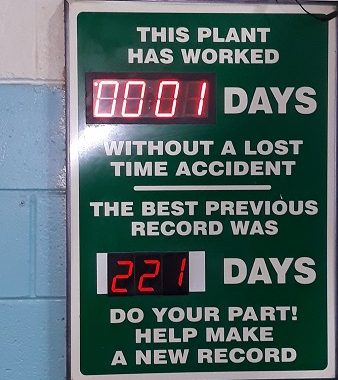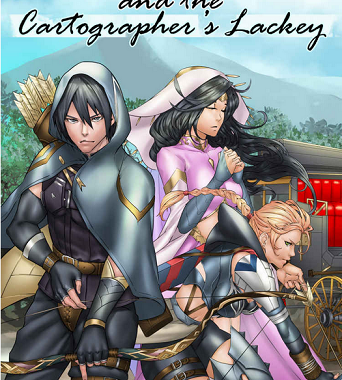
Review – Colony One
Ever read a sci-fi book so good it makes you feel like it’s going to negatively impact the reviews you give for future books you read, or that you need to go back and lower past reviews you’ve written because other books simply can’t compare? Colony One, by author T. L. Ford, was that book for me. Despite it’s frankly unusual and forgettable cover with it’s strange lettering choice and come-hither blond woman on the front imposed over a picture of the earth, it’s actually a gritty tale of a woman who builds a company from scratch that ends up being a space station, backed by several crime organizations.
Consider purchasing the book from the above banner, or from this link – it may benefit the website!
The story begins with Alex Smith, who is super smart and intelligent and a piano prodigy, but she doesn’t have any parents. One day, she’s adopted by a loving couple who is vouched to be perfect and have all the right answers. What a fairy tale start to an oh god why is she now in a locked basement with a piano and a toilet and not much else and why is this story going dark so quickly no. She escapes, and somehow things get worse? Yikes.
Alex is a prodigy, and she has perfect recall memory – a rare trait indeed, and with credit to the author it’s handled in a realistic way. Alex is also super resourceful, which is good because when she’s on the streets of America she finds she has to adapt quickly to the cruelty of being an orphan who isn’t part of a real gang. One of the kinder members of her four person coterie finds herself afoul of a more established gang and in a bid to save her she quickly comes to terms with the reality of her world, killing not so much to survive as to escape from herself while allowing the closest thing she has to family escape to safety. In the aftermath, there’s a decision to escape again.
Fate has her escape from the rain one day in an antique shop, where she finds an old man willing to give her some food and surprises her with a chance to work under the table. She deftly plays him, leading him to believe she isn’t actually homeless and that she is currently in school and doesn’t spend her time escaping to the local library when she isn’t out foraging for food. There is a decisive twist when it turns out the old man is deceiving her as well – he knew she was lying, but thought she was a mole from a rival crime organization. Turns out, the old man is one Sal Marino, head of the Marino crime syndicate, and while he isn’t that active in the day-to-day dealings of The Family he still can’t afford to be too careful.
All of this is the backdrop for the pull of the science fiction part of the story. Alex is a smart individual, and she spends a lot of time in libraries reading well above her grade level – scientific magazines especially. One day she comes across an article about CERN’s research and something nags at her, a puzzle she can’t quite solve. Over a few years, she figures out an equation that she is certain can be applied to create unlimited energy.
Science Fiction clash with gritty violence as Alex is targeted by a rival family, and then by corrupt law officials (and officials that perhaps aren’t corrupt but see Alex as nothing more than a step towards their own agenda of shutting the Marino family down.) The book slowly evolves as Alex escapes these plots (sometimes putting an end to them herself) and has to balance her need to better herself in the eyes of society while also putting her unlimited energy plan to use. She creates a company to sell batteries that, with the right adapter, can power any laptop (and later any car or building, escalating as the story progresses) before ultimately the company she has created becomes it’s own nation-state, and then it’s own nation – the space station Colony One.
If I were to be picky, I’d argue that there’s a bit of a jump in character from when Alex goes from wanting to harness unlimited energy for her family, and when she decides the best way to go about this is to create a company environment that’s decisively progressive for the betterment of its employees. It makes sense, in a way, but it was interesting to see this character go from a hard-coded killer who had survived significant tragedies to an individual so lost in her own dogma she couldn’t see the forest through the raging fire the government and rival crime syndicates has started among the trees. People grow, and it’s clear that Alex’s time with her mentor and father figure Sal Marino plays a part in this, but the middle act did leave me wondering how Alex could change so much, and so ineffectively.
There’s also something to be said about the “science” nature of the science fiction. The story starts out in a way that leads the reader to expect this is going to be a hard science kind of story, but a lot of the story is carried by things like picobots, bioenergy shields, physical electricity, invisible HUD sets for individuals, and the ability to create and manipulate matter. At times, it seems like the answer to most of the story’s obsticles is “will this be fixed with more picobots, or simply a different application of them?”
These are fairly small gripes for what is such an engaging and engrossing story that handles a lot of the drama and politics with a real world heft. There is also a backdrop that even as the entire world (and especially the United States) struggles with the existence of the autonomous Colony One, the planet itself is starting to fail and becoming less habitable for its human populace, and the conflict this brings.
Overall, Colony One is a gritty story that’s as much about the growth of it’s protagonist as it is about the growth of a business that eventually becomes a colony in space, with all the trappings of conflict between persons, companies and countries that makes science fiction great. It’s an easy book to recommend, and frankly I feel it’s criminally underlooked. This could have easily been a traditionally published book and I would not have been surprised.
Colony One is listed as having 434 pages, and is available as an E-book for $5.99 via Amazon, or is free to read as part of a Kindle Unlimited subscription. You can visit the author’s personal website here.




